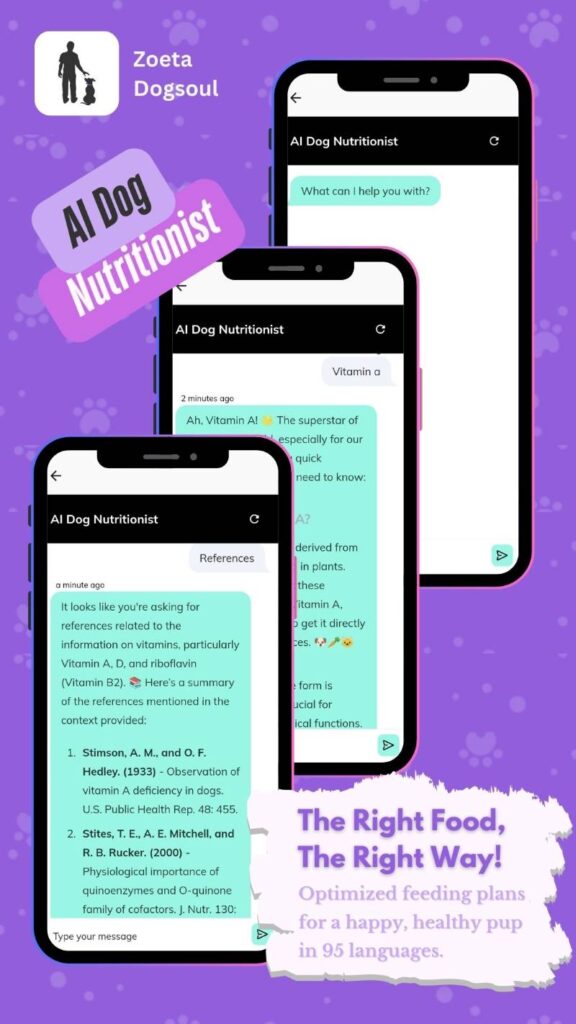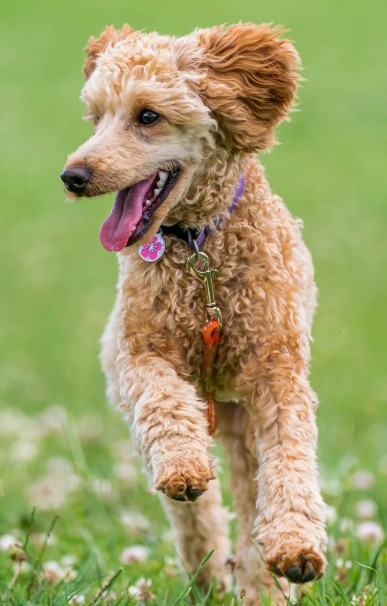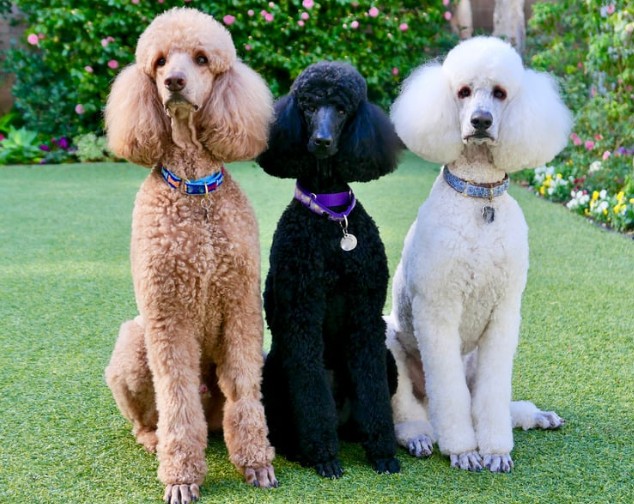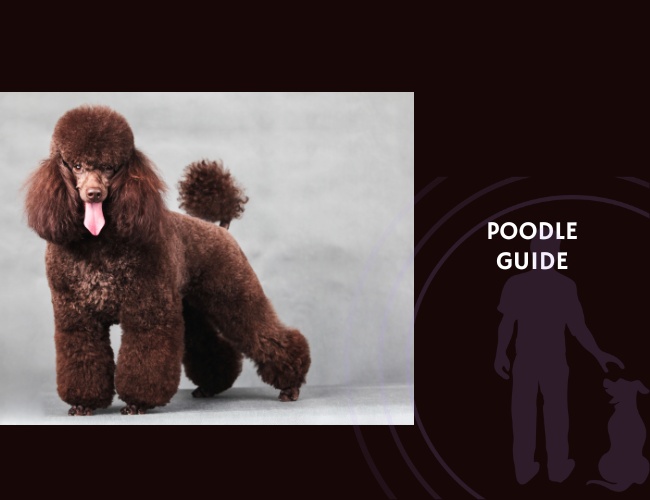Introduction to Poodles
A Brief Look Back
Poodles have a fascinating past! Originally bred as water retrievers, these dogs helped hunters retrieve birds and ducks from lakes and rivers. Their waterproof curly coats and eager nature made them perfect for this job. Over time, their smarts and charm led them from the marshes of Europe to loving homes and show rings worldwide.
The Three Sizes
There are three official sizes of poodle, each bred for different needs while keeping the same classic look.
- Standard: The largest type, standing over 38cm at the shoulder. They are athletic, energetic, and still steadfast workers.
- Miniature: A medium option, usually between 28cm and 38cm. Miniatures are versatile—small enough for city life but big enough for sports.
- Toy: The smallest, under 28cm tall. Toy poodles are perfect for people with limited space, but they pack just as much personality as their bigger cousins.
Shared Traits and Qualities
No matter the size, all poodles show similar qualities. They are clever, quick to learn, and always eager for play and puzzles. Poodles are known for forming strong social bonds with their humans, showing lots of empathy and affection. Their curly coats, energetic stride, and lively eyes make them stand out in any crowd. 🐩
Poodles are ready learners and loving companions, always up for a challenge or a cuddle.
Their natural curiosity sets the stage for deeper discovery of their unique personalities.
Character and Behavior
Intelligence and Awareness
Poodles are famous for their high intelligence 🧠. They spot changes in their environment quickly and learn new things at a fast pace. Their sharp minds make them quick to figure out puzzles or new routines at home. This strong attentiveness means they catch on to both simple commands and complex tasks with ease. Still, their love of learning means they need plenty of mental stimulation to prevent boredom and restlessness.
Social Bonds and Emotional Perception
Poodles form very strong bonds with their family. They are known for being loyal, affectionate, and super attentive to human emotions. If you are happy, they are eager to join in; if you are sad, they will try to comfort you. This emotional perceptiveness makes them wonderful companions who truly connect with those around them. They thrive when included in family activities and given lots of positive interaction.
Curiosity and Playfulness
Across all sizes—Standard, Miniature, and Toy—Poodles are naturally curious and playful. They love to explore new places, sniff around the garden, or chase a favorite ball. Providing a variety of activities, from games to interactive toys, keeps their playful spirits high. Their fun-loving nature makes them great pets for people of all ages.
Each of these traits shapes the day-to-day life of a Poodle. To keep them happy, offer mental challenges, steady routines, and loving companionship.
Potential Behavioral Challenges
Noise Sensitivity and Separation Anxiety
Poodles are very alert and can be sensitive to loud or sudden noises. This sensitivity may lead to anxious barking or restlessness, especially in busy or noisy environments. If left alone for long periods, a Poodle might show signs of separation anxiety, such as whining, destructive chewing, or pacing. These behaviors often arise when mental and physical needs are not fully met. Because of their strong bond with their humans, Poodles crave companionship and do best in households where people are often home.
Size-Specific Behavioral Tendencies
Smaller Poodle varieties, like Miniatures and Toys, may show more reactivity. For example, these Poodles might bark more at strangers or unexpected changes in the environment. Sometimes, smaller size causes them to feel vulnerable, leading to hypervigilance or overcompensation behaviors, such as becoming overly protective or easily startled. Early socialization and positive experiences can help lessen these tendencies.
The Importance of Mental Stimulation
All Poodles share a need for ongoing mental stimulation. Without enough puzzles, toys, or interactive activities, boredom can quickly set in and lead to problem behaviors. Some common behaviors that may occur are digging, chewing household items, or incessant barking. Daily enrichment, varied routines, and training sessions keep Poodles happy and balanced. 🧩
Caring for a Poodle involves understanding these behavioral traits and meeting their needs for engagement and belonging. Developing strong routines and providing positive outlets for energy support a joyful and cooperative pet.
Training and Education
High trainability and quick learning
Poodles are famous for their intelligence. This helps them pick up new commands and routines faster than most dog breeds. Whether Standard, Miniature, or Toy, they all learn with great speed. Training works best when you use clear signals and stay consistent. Avoid harsh or repetitive routines as these can make a Poodle anxious or lose interest. Instead, keep sessions short and varied to match their sharp minds.
Using positive reinforcement
Positive reinforcement works wonders with Poodles. When they get a treat, praise, or play after doing something right, they are more likely to repeat that good behavior. This supportive approach helps build their trust and motivation. Focus on rewarding actions you want rather than punishing mistakes. Humor and patience also go a long way to making training a fun bonding experience.
Advanced skills and special activities
Because of their ability to learn quickly, Poodles can handle complex tasks. Many excel in activities like obedience, agility, and even scent detection. Standard Poodles, in particular, do well in job-like tasks. Engaging in games such as hide-and-seek or simple retrieval can keep their minds sharp. Keeping training interesting prevents boredom and helps your Poodle be confident and well-mannered. 🐾
Caring for a Poodle means understanding their mental and physical needs, which shapes every other aspect of their well-being.
Early Socialization and Training Foundations
Why Start Early?
Early socialization is essential for all Poodles, no matter their size. When Poodles meet new people, animals, sights, and sounds early in life, they grow into confident and well-balanced dogs. This friendly exposure reduces the risk of fear-based behaviors, like anxiety and reactivity. Standard, Miniature, and Toy Poodles all benefit from these early experiences. The more positive things a puppy learns before 12 weeks old, the easier adult life becomes. 🐶
Building Impulse Control
Impulse control training helps Poodles learn patience and self-control. Begin with simple cues such as “sit,” “wait,” and “leave it.” Practice these skills during playtime, feeding, and walks. Always use lots of treats, praise, or a favorite toy as rewards. Teaching a calm response, especially in exciting situations, stops unwanted jumping, barking, and grabbing. For smaller Poodles, work on gentle handling since they can be a bit more sensitive.
Keeping Training Fun and Fresh
Poodles are smart, so training must stay interesting. Mix up training games, locations, and rewards to keep your dog curious and focused. Try using puzzles, new tricks, and interactive toys. For Toy Poodles, go slowly when introducing new things—they need careful, gentle handling due to their size and fragility. Short and positive sessions help your Poodle love learning and build strong trust with you.
Creating good habits early sets up your Poodle for a happy, healthy life with fewer challenges down the road.

Nutritional Requirements
Meeting Caloric and Protein Needs
Each poodle size—standard, miniature, or toy—needs a diet tailored to their weight and lifestyle. Standards usually need more calories, especially if they are active. Miniature and toy poodles, being smaller, eat less but still require high-quality nutrition. A balanced approach ensures your poodle maintains a healthy weight and energy for daily fun. Protein is very important for all poodles. It helps their coats stay soft and curly and keeps their muscles strong. Active poodles or older adults may need a bit more protein for energy and muscle support.
Life Stage and Special Dietary Considerations
Puppies, adults, and seniors each have unique nutritional needs. Puppies need extra calories and protein for healthy growth. Adults benefit from a steady diet with quality ingredients, while seniors sometimes need fewer calories but more joint-supporting nutrients. All poodles should have their diet adapted as they age.
Miniature and toy poodles are prone to dental issues, so you should select food with the right kibble size to help clean their teeth. Standards may benefit from joint supplements to support healthy movement. Always be mindful of any food sensitivities or allergies, adjusting meals as needed with your vet’s advice.
Remember, every poodle is an individual. Regular checkups will help you keep your poodle’s nutrition right on track. 🐾
Next, we’ll focus on the importance of dental and joint health.
Dental and Joint Health
Caring for Poodle Teeth 🦷
Dental health is vital for all Poodles, but especially for Miniature and Toy varieties. These smaller Poodles have tinier mouths, making them more prone to dental crowding and tartar buildup. Left unchecked, this can cause gum disease and tooth loss. To keep their teeth clean and healthy, use small, crunchy kibble that helps scrub away plaque. Regular brushing with dog-safe toothpaste is another helpful habit. Veterinary dental cleanings are also recommended to catch issues early and keep your Poodle smiling bright.
Joint Support for Standards 🦴
Standard Poodles can encounter joint problems, such as hip or elbow dysplasia, due to their size and energetic nature. Active Standards may benefit from joint-supportive supplements containing glucosamine and chondroitin. These can help maintain cartilage health and support smooth movement as your Poodle ages. Always talk to your veterinarian to choose the best option for your individual dog’s needs before adding any supplements.
Addressing Sensitivities and Allergies 🌱
Every Poodle is unique, so it’s important to watch for signs of dietary sensitivities—like itching, tummy troubles, or changes in coat quality. In families where Poodles have a history of food sensitivities or allergies, a tailored diet may be needed. Speak with your veterinarian if you notice any changes, as they can recommend suitable diets or allergy testing for peace of mind.
A thoughtful approach to dental and joint care helps set your Poodle up for years of happiness and play.
Elegant. Intelligent. Unstoppable.
Poodles are more than a pretty face—they’re problem solvers with purpose.
Whether retrieving from water or dazzling in the show ring, their brilliance shines through. This isn’t just a dog who learns tricks.
Loyalty meets empathy in every wag.
Poodles don’t just follow commands—they follow emotions. They feel what you feel and react in kind. Sadness, stress, joy—they mirror it all with a quiet attentiveness that makes them feel like family from the start.



Structure, stimulation, and softness—these are Poodle essentials.
Their minds crave puzzles. Their routines need consistency. Their bodies flourish with care. Whether Standard, Miniature, or Toy, a Poodle isn’t just a pet—it’s a partner in life, looking to belong, to learn, and to love deeply.
Common Health Concerns
Health Issues Shared by All Sizes
Poodles, no matter their size, are prone to a few important health conditions. Progressive retinal atrophy (PRA) is a serious eye problem that can lead to blindness. Addison’s disease is another concern, causing issues with hormone levels and energy, which may require lifelong treatment. Epilepsy, causing random seizures, can occur in any Poodle and needs careful medical care to ensure a good quality of life. Regular checkups and genetic testing can help your Poodle stay healthy and catch problems early. 🐾
Health Risks for Standard Poodles
Standard Poodles have some unique health risks. Hip dysplasia is common, affecting joint movement and causing pain or limping as they age. Sebaceous adenitis is a skin disorder leading to hair loss and flaky skin. Gastric dilatation-volvulus (GDV), sometimes called “bloat,” is another issue. GDV is a sudden and life-threatening twisting of the stomach, so knowing the warning signs and acting quickly is important.
Health Risks for Miniature and Toy Poodles
Smaller Poodles, like Miniature and Toy varieties, face some different health concerns. Patellar luxation happens when the kneecap slips out of place, causing hopping or lameness. Tracheal collapse, where the windpipe becomes narrow, can make breathing noisy or difficult. Smaller Poodles can also have crowded teeth, making dental care very important.
Good care, regular vet visits, and attentive observation will give your Poodle the best chance for a long, healthy, and happy life.
Preventative Health Care
Genetic Screening and Responsible Breeding
Taking steps to prevent health problems starts with genetic testing. Poodles are prone to conditions like progressive retinal atrophy (PRA), Addison’s disease, epilepsy, and others. Responsible breeders use genetic screening to help reduce the risk of passing these illnesses onto puppies. This informed breeding practice means a healthier start for your furry friend 🧬. Screening also helps breeders avoid health issues common in the Standard variety, such as hip dysplasia and sebaceous adenitis, and those in the Toy and Miniature lines, like patellar luxation and tracheal collapse.
Regular Checkups and Health Screenings
Poodles benefit from a dependable veterinary routine. Regular checkups allow early detection of potential problems. Your vet may suggest screening for conditions like joint issues or eye disorders—quick responses to health changes make a real difference. Annual visits, dental exams, and bloodwork are part of keeping your Poodle well. This professional and supportive care increases your pet’s years of happiness and comfort.
Lifespan and Longevity Factors
Poodle lifespan depends on size and health care. Standards usually live 12-15 years, while Miniature and Toy Poodles often reach 14-17 years. Genetics, preventive care, and daily routines with proper nutrition and exercise help your Poodle live a long, joyful life 🐾.
With proactive care, you set the stage for an active, happy companion.
Exercise and Physical Needs
Understanding Activity Needs By Size
Exercise is vital for a Poodle’s health and happiness. Each size needs a different approach. Standard Poodles have lots of energy and enjoy long daily walks or active playtime, perfect for games like fetch or agility. Miniature Poodles like frequent, shorter sessions and will thrive with brisk walks mixed in with play. Toy Poodles, being tiny and delicate, need gentle, short activities like indoor fetch or a careful stroll on a leash. 💡
Balancing Physical and Mental Stimulation
Physical activity helps Poodles stay fit, but their minds crave attention too. Use puzzle toys, scent games, or basic training drills to keep their brains busy. Boredom from lack of stimulation can lead to unwanted behaviors, especially in intelligent breeds like this.
Try rotating activities each day:
- Go for a walk
- Play a new game
- Practice a training trick
- Offer a treat puzzle
This keeps your Poodle’s mind and body sharp and content.
Adapting Exercise For Age and Life Stage
Puppies need several short bursts of gentle play to protect their joints. Adult Poodles benefit from regular, varied activities tailored to their size. Seniors may slow down, but gentle, steady walks and softer puzzle games keep them active without strain. Adjust exercise based on age to ensure lifelong health.
Caring for your Poodle’s physical and mental exercise creates a happy, well-balanced companion.

Environmental and Lifestyle Needs
Building Routine and Social Connection
Poodles truly flourish in a home with daily routines and plenty of time spent with their families. These dogs build strong bonds and need to feel included in family life for their well-being. Consistent schedules help lower anxiety—feed, walk, and play at similar times every day. Make sure your Poodle receives regular affection, social play, and quiet time together. Their happiness grows with each positive human interaction! 🐩
Adapting to Different Living Spaces
One reason Poodles are so beloved is their adaptability. Whether your home is an urban apartment or a country house, a Poodle can thrive if its exercise and stimulation needs are met. In apartments, focus on frequent walks, interactive play, and puzzle games; in larger homes, let them explore safe, fenced yards. All Poodles appreciate routine outings and new sights to keep their minds sharp.
Environmental Enrichment for a Happy Poodle
Mental and physical enrichment is essential for this clever breed. Keep your Poodle busy with:
- Puzzle feeders or treat-dispensing toys
- Rotating plush toys and chewables
- Hide-and-seek games around the home
- Short training sessions to learn new tricks
Consistent enrichment not only fends off boredom but strengthens your Poodle’s bond with you. Remember: variety in activities helps prevent common behavior challenges and nurtures a well-rounded dog.
Creating a stable, affectionate, and stimulating home sets the stage for your Poodle’s lifelong happiness and adaptability.
Grooming and Maintenance
Coat Care and Grooming Frequency
Poodles have dense, curly coats that need thoughtful, regular care to keep them looking and feeling their best. Their unique coat does not shed like many other breeds, but it will mat easily if not brushed out several times each week. Most professional groomers recommend a full brushing every other day to prevent tangles and mats. Regular baths, typically every 3-4 weeks, help keep their coat clean and healthy.
Trimming is also key for poodles. Many families choose to have their poodle professionally groomed every 4-6 weeks, but some owners learn to trim at home for routine upkeep.
Grooming Styles and Practical Options
Poodles can sport a wide variety of grooming styles. The most practical for family pets is the “puppy clip”—short all-over with a rounded face and tail. For those who enjoy a classic look, the “continental clip” is popular for shows, featuring pom-poms on the legs and tail. Each size—standard, miniature, and toy—can wear these styles or have their coat shaped based on your preference and activity level.
At-Home Grooming Tools and Techniques
To care for a poodle’s coat at home, gather these essential tools:
- Slicker brush
- Wide-toothed comb
- Detangling spray
- Electric clippers (with guards)
- Rounded-tip scissors
Gently brush the coat in layers, starting near the skin to prevent matting. Trim hair around the eyes and feet for cleanliness and comfort. Regular nail trims and ear cleaning help prevent discomfort and infection.
By making grooming a relaxing and positive experience, you’ll foster trust and confidence in your poodle 🧼🐩. Consistency with these routines ensures they remain healthy, comfortable, and beautiful.
Good grooming habits also support your poodle’s well-being and set the stage for a happier pet-parent relationship.
Living with a Poodle
Integration into Family Life and Social Dynamics
Welcoming a poodle into your home means gaining an intelligent and deeply affectionate companion. Poodles naturally bond with family members, wanting to participate in every part of your day. Their love for attention makes them feel happiest when included in games, routines, and family time. Whether enjoying a walk, playing fetch, or simply cuddling on the couch, your poodle will thrive when treated as a true family member.
Compatibility with Children and Other Pets
Poodles have a reputation for being gentle and playful with children. Their intuitive and friendly nature enables them to pick up on the emotions and needs of young family members, making them loving playmates. When raised with other pets, poodles usually get along well, especially if early socialization is provided. Just remember, supervision is important with very young children or unfamiliar animals to keep interactions safe and positive.
Long-Term Commitment and Lifestyle Considerations
Owning a poodle is a long-term responsibility, often spanning more than a decade. Daily routines should provide exercise, mental challenges, and regular social interaction. Be sure to plan for ongoing needs such as grooming, training, and health care. A stable routine, consistent companionship, and plenty of enrichment will help your poodle live a joyful life.
Creating a home where your poodle feels secure and engaged supports their well-being—and yours! 🐩
Conclusion: Is a Poodle Right for You?
Key Considerations for Prospective Poodle Owners
Choosing a poodle means committing to an intelligent, curious, and playful companion. Poodles come in three sizes—standard, miniature, and toy—each with unique activity levels and grooming needs. All poodles thrive on mental engagement, regular exercise, and loving routines. If your lifestyle is active and you enjoy daily time with your pet, a standard poodle may be a good fit. For those in smaller spaces or apartments, miniature or toy poodles adjust well, provided they get enrichment and attention.
Matching Size and Temperament to Your Life
Think about your living space, time available for exercise, and how much regular grooming you can do.
- Standard poodles need more vigorous exercise and space to play.
- Miniature and toy poodles are adaptable and love being close to their families but may need gentle handling due to their smaller size.
All poodle types benefit from early socialization, variety in training, and consistent routines. This helps prevent anxiety and keeps their minds sharp.
Support and Resources for Poodle Owners
For more information or support, consult reputable breeders, veterinarians, and local poodle clubs. Online communities and training resources can also provide guidance. Education, patience, and proper care will help you form a rewarding, lifelong bond with your poodle. 🐾










